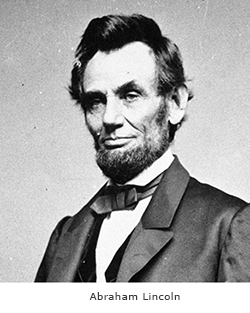July 2023
Our world is on the verge of losing one of its greatest values, namely the art and blessing of listening well. The internet has put a megaphone into the hands of every single person who owns a computer or hand-held device. In many people’s desperate need to be heard in our faster-paced world, they are racing to their keyboards and blasting out opinions, far more concerned with speaking than listening. No one seems to be truly listening to one another anymore. There seems to be a lot of yelling going on. As a result, effective communication is breaking down, empathy is being lost, trust broken, fear being stoked, and anger becoming commonplace. Worse yet, people are losing the most basic skills of listening. Too many parents or other leaders are burying their heads into smart phones, barely able to notice or acknowledge others in the room. Children are growing up with poor examples surrounding them. Many young adults are quickly becoming lonely, some tragically withdrawn, becoming a danger to themselves and others. Active listening is an act of love. And when there is no listening, there is no love. That is when danger begins knocking at our doors.

In today’s world, how often do you find yourself trying to get someone’s attention, only to discover that all along they have had earbuds stuffed in their ears. They cannot hear you, nor do they care to hear you. They would rather be by themselves enjoying music or favorite podcasts. They do not see the value of noticing you or recognizing your needs. They want to be alone assuming you want to be alone as well. Nature, too, is crying out to them. Birds are singing, dogs barking, wind blowing, and trees are rustling, but some could care less. They would rather listen to someone on social media making fun of someone from a different political party. They are busy with themselves and do not want to be interrupted by something as simple or mundane as engaging with another person or enjoying the beauty of nature.
This new thirst and ability to be alone is unfortunately interrupting people’s relationship with God. They have become too busy to hear from God. Throughout history, God has gone to great lengths to be heard. He has spoken to humanity in the quiet of the Garden of Eden, from fiery mountain tops in the Sinai Peninsula, from grassy knolls in Galilee, by way of his comforting Holy Spirit, through Holy Scriptures, Sunday morning worship experiences, and wherever two or three are gathered in his name. Whenever God speaks, we need to be in a position or disposition to hear from him. We need to make room for him in our lives. However, if we are endlessly distracted, we will never hear from God. We will be more alone than ever apart from him and his loving grace.

One of our nation’s greatest listeners was Abraham Lincoln. He made it a practice to listen to all sides of a debate before making his own decision. He believed deeply in what he read in his Bible: “Fools think their own way is right, but the wise listen to others.” (Proverbs 12:15) Lincoln bathed himself in the New Testament, often reading the Book of James and wise words such as these; “Understand this, my dear brothers and sisters: You must all be quick to listen, slow to speak, and slow to get angry.” (James 1:19) Tragically, few public leaders today follow Lincoln’s example. They are becoming more entrenched in their own narrow views, and, therefore, more belligerent and dangerous to themselves and others. One of Lincoln’s biographers wrote, “Whenever Lincoln spoke with someone, he would give them his full attention, listening carefully to every word. In doing so, he would develop a deep understanding of their feelings, concerns, and motivations. In turn, they would see someone they could trust. Lincoln was like this with everyone he met.”
Listening actively demands self-sacrifice, patience and compassion. Putting others’ interests above our own is not natural for many people; it necessitates quieting the endless voices, worry, distractions, and anxiety in our own lives so we can truly hear what the other person is saying. If we do not listen sincerely and often, developing this most important muscle and instinct within our souls, we will only hear the surface or simple message of the others and miss what they are truly trying to say.
One of the most basic requirements of active listening is remembering another person’s name when you are first introduced to them. Many people claim they were born with an inability to remember others’ names. Nothing could be further from the truth; and we all know it deep down in our hearts. With a little hard work and intentionality, it is certainly possible for people to improve in this area of their lives. Even if you need to ask a new acquaintance to repeat their names several times or have them write it down before you remember it, it bears tremendous fruit if you do. Everyone wants to be known and recognized by their name. And we all want to be loved by others.
One of my heroes in this regard is my daughter Shannon, today a second-grade teacher. However, when Shannon was in first grade on the first day of class, the teacher asked all 16 students to introduce themselves to each other. Then at the end, the teacher said half-jokingly, “Can anyone in the class remember everyone’s name?” Shannon, apparently slowly, raised her hand and quietly recited everyone’s name down to the last person. The teacher was astonished and later told us that in all her years of teaching, no one had ever remembered all her fellow students’ names on the first try! Yes, some people are more gifted at listening and remembering names than others, but we are all capable of improving in this vital area of life. Elementary teachers know how important it is to feel known and loved for the healthy emotional development of their young students.

Jesus was a master at listening when he was talking with other people. He is our model to emulate. He believed in one-on-one private encounters with individuals so that he could look into their eyes, read their body language, tones of voices, and mannerisms as well as their words. Often people we encounter begin talking without a clear understanding of what they are trying to say. They need the love and assistance of their listener to help them shape their thoughts and self- understanding. This is why friendships, counselors, and small groups are so important. We all need the blessing of other people listening to us. After his active listening, Jesus told the rich young man he needed to become less attached to his material wealth. He told Nicodemus he needed to be born again. He helped the Samaritan woman to realize she needed Living Water, not another unhealthy relationship with a man.
As you try to be a better listener and, therefore, follower of Jesus, you may at first notice how easily distracted, restless, and anxious you become when actively listening to another person. It will take work and persistence until it becomes more natural to you. Remember you are fighting a tide in our world today that devalues the need for community and promotes all kinds of ways to be alone and self-entertained. As you work at listening more actively, ask God to help you overcome your self-centeredness. Through your faith in Christ and with God’s help, you will slowly begin hearing the heart and souls of other people, the singing of birds in the air, and the quiet whispers of our Lord in your life.
With your greater empathic skills, you will also begin to hear the cries of people in distress in the world who desperately need our help, such as young children enslaved in sex trafficking, women stripped of education, dignity and leadership opportunities in Afghanistan and Iran, or the mentally ill in our own country. Your life will never be the same or more fulfilled as you begin to help Jesus bring greater healing to our world.
In the First Century, followers of Jesus changed the world by the radical way they loved each other. May that same humble, meek, faithful, serving, and listening spirit return to us today. Let us remember these most helpful and challenging words of the Apostle Paul when he wrote to the people of Rome, “Don’t pretend to love others. Really love them…Love each other with genuine affection, and take delight in honoring each other…When God’s people are in need, be ready to help them. Always be eager to practice hospitality…Be happy with those who are happy, and weep with those who weep. Live in harmony with each other. Don’t be too proud to enjoy the company of ordinary people. And don’t think you know it all!” (Romans 12:9a,10,13,15,16) Just listen.
